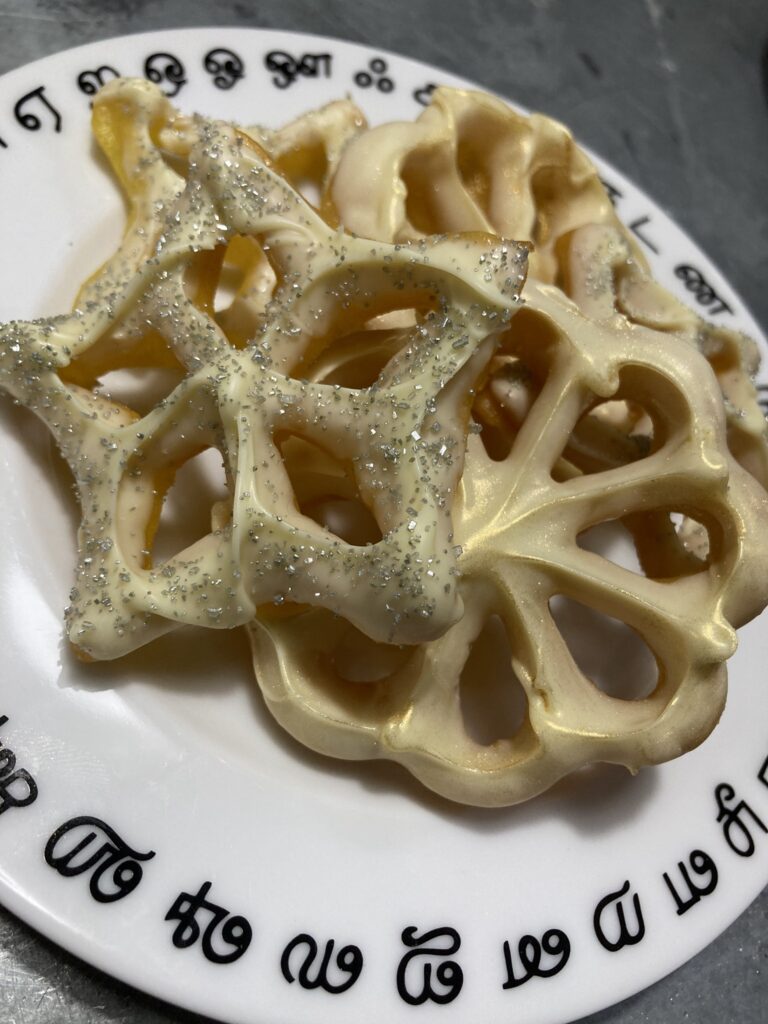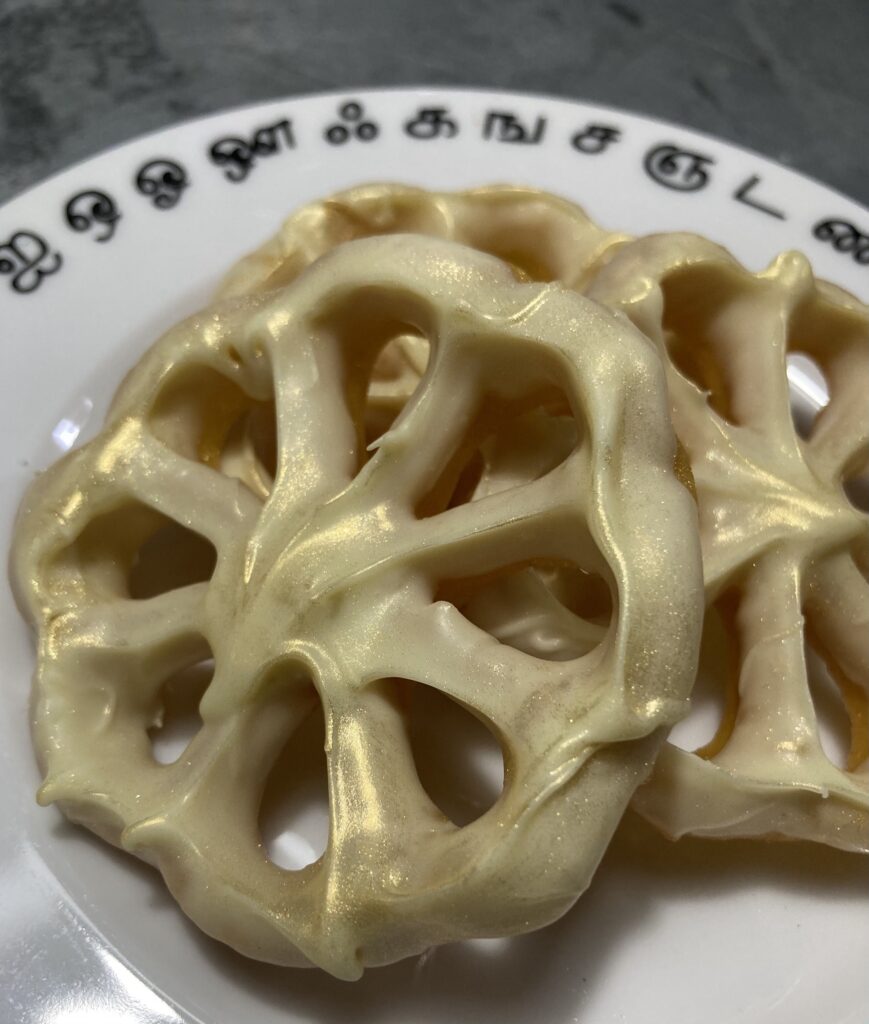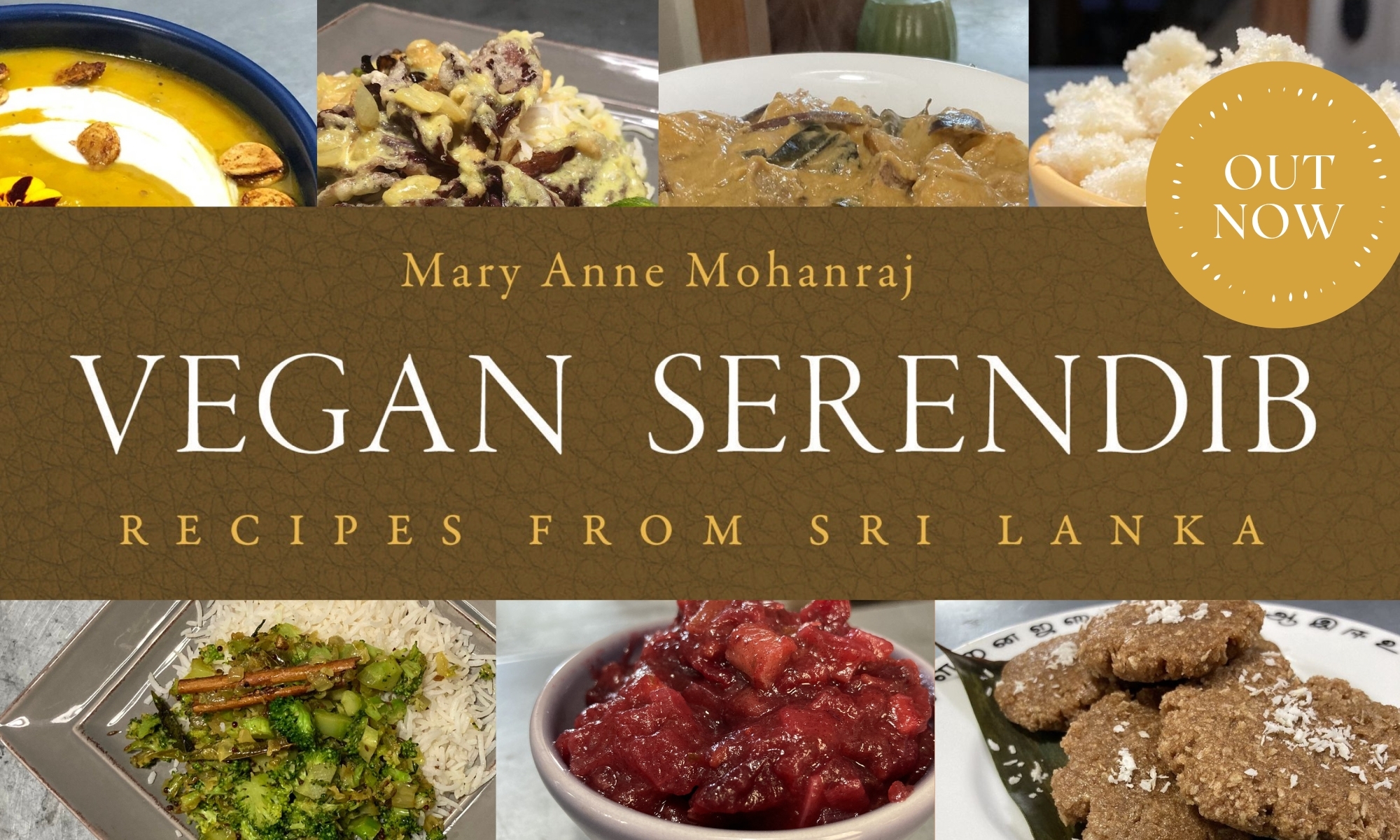
They Were Not Wrong
What would make these sweetmeats better, my ancestors wondered? Oh, I know — let’s dip it in a batter and fry it!
(They were not wrong.)

Balls of Deliciousness
Squishy little mung bean / toasted coconut / rice flour / jaggery balls of deliciousness.
Toasted Moong Dal Flour, Red Rice Flour, Toasted Coconut, White Sugar, Jaggery, Cardamom

Red Rice Flour Too
Making the Green Gram / Moong Dal Flour…
Kokis
Kokis is a deep-fried, crispy treat made from rice flour and coconut milk. Although it’s considered a traditional Sri Lankan dish, kokis is likely a result of Dutch colonial rule during the Kandyan period. Its name may have been derived from the Dutch word “koekjes,” meaning cookies or biscuits.
Kokis is very similar to Swedish rosette cookies, and uses the same sort of rosette iron, but the use of rice flour and coconut milk gives a notably different result. Kokis may be made savory or sweet; they also resemble Persian nan panjereh, the achappam of Kerala, Mexican buñelos, and Portuguese filhós de forma.
Kokis are traditionally served for Sri Lankan (Sinhalese and Tamil) New Year celebrations in mid-April, along with kiri bath and other delicious sweetmeats. They’re also popular at Christmas.
NOTE: To make kokis, you will need a special long-handled kokis iron / mold; in America, it may be easier to find if you search for a rosette iron / mold. Other popular shapes include stars and crossed wheels.
vegetable oil for deep frying
1. Combine the first six ingredients in a bowl, stirring to combine; you’re aiming for something similar in consistency to thosai batter; it should lightly coat the back of a spoon.
2. Heat the oil over medium-high heat — if using an electric thermometer or fryer, aim for about 350F degrees.
3. Dip mold in hot oil for a few seconds until it becomes hot (necessary to help the batter adhere properly).
4. Dip mold in batter, without immersing it completely — if you do, you won’t be able to remove the kokis from the mold — and dip immediately in heated oil again.
5. After a few seconds, you can tap the mold against the side of the pan, and the kokis should slide off. If necessary, use a wooden (or metal) chopstick or skewer to help push the kokis off the mold. (It may be a little extra-sticky with a new mold.)
6. Fry the other side for a few seconds, then remove to a plate lined with paper towel.
7. You can enjoy them as is (nice with a cup of sweet milk tea), sprinkle with powdered sugar, dip in a sugar or honey syrup, or even dip in chocolate and decorate. They will keep for about a week in a sealed container.
Savory variant: Omit sugar; mix in chili pepper flakes, black pepper, and curry leaves.
Festive
I think I might make these for Christmas this year. ![]() Festive.
Festive.

Life’s Better With a Little Luster…

Pretty Pretty Kokis Flowers
















